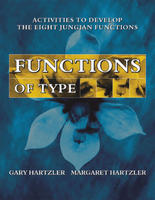- Joined
- Dec 23, 2009
- Messages
- 26,706
- MBTI Type
- INTJ
- Enneagram
- 6w5
- Instinctual Variant
- sx/sp

By Gary and Margaret Hartzler
This publication, which is only 60 pages long, is intended to help you to “strengthen your mental data-collection and decision-making skills†by “becoming aware of ourselves and the ways that we collect data and make decisions.†It starts out with a few pages on the topic of type development and then quickly jumps into a chapter on each of the 8 cognitive functions, which is really the heart of the book. Each chapter includes a couple of pages describing the function and then there is a one-page self-assessment of your skills with respect to that function. After that, there are two pages of material helping to describe specific things that you can do to develop that function. For example, for introverted sensing, it describes activities you can perform to engage sequential perception and recall, compare the present to the past, record precise memories, bring past experiences to the present, etc. At the end of the chapter, there is a page for you to write down notes on the activities you performed, your reactions/comments and “what to do next timeâ€. I guess this is really more accurately referred to as a workbook than a book. I have some questions on how effectively you can develop/use non-preferred functions but in either case, I thought the material was very good. I highly recommend this.

 So in that way, it can be quite telling of your natural preferences imo.
So in that way, it can be quite telling of your natural preferences imo.